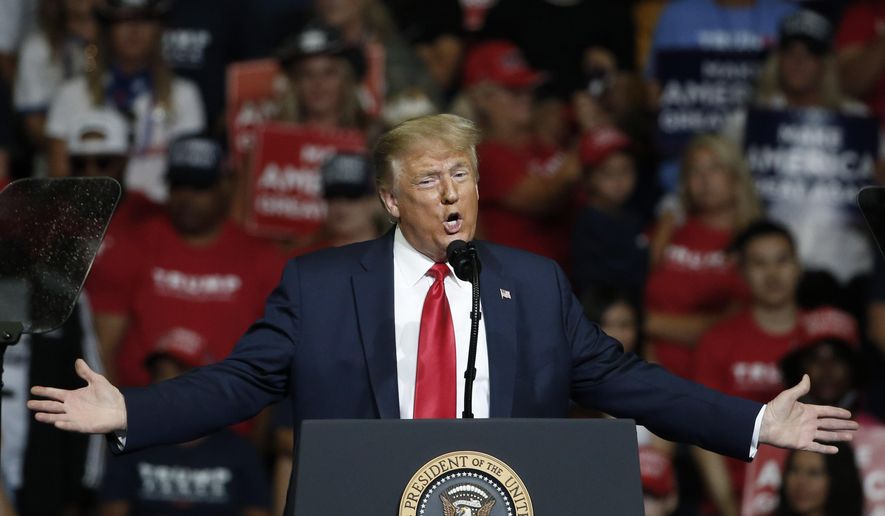OPINION:
Given the seemingly diffident affair that is the Trump reelection effort to date, I have been asked by a variety of friends and enemies whether there is hope of the president winning reelection.
Yes, there is. But, as I’ve mentioned before, President Trump’s team needs to alter its strategy a bit, get serious about message discipline and start treating the campaign as an opportunity to persuade, rather than as a science fair project focused on who has the coolest database.
It is pretty much an article of faith among campaign operatives that an incumbent’s approval rating and his or her performance on Election Day are linked. There is some truth to that. If you take a look at the last eight presidents who ran for reelection, their percentage of the vote was pretty close to and just a bit higher (1.2% on average) than the approval rating measured closest to Election Day.
That’s good news for President Trump. His highest approval ratings in the Gallup poll (which has the best set of public numbers) have been 49%, which he has hit five times during his presidency. All five times have occurred this year, and three have been registered since the middle of March — the latest one being on May 13.
These numbers indicate two things.
First, as we move toward the election, voters are starting to think more carefully about their choices.
Second, it suggests that the president can and should make a case for reelection primarily on the strength of his record. He is within striking distance of victory. He needs to strike. He needs to remind voters what he and his team have accomplished.
The White House has a list of accomplishments that it updates frequently and occasionally shares with surrogates (at the top of the list is the somewhat cheeky “saved the failing New York Times”). Publishing that list would be an excellent start. Talking about it more routinely would be even better. Occasionally describing how the administration plans to build on it in the event of a second term would be helpful as well.
Emphasizing the work done on the economy, on regulations, on judges, on preservation of liberties, on the security of the nation while avoiding entangling us in another pointless war, on energy independence, on immigration, on dealing with China, all would be worthwhile themes. The recent creation of the rapid response Twitter account designed specifically to address administration accomplishments may be a worthwhile start.
Imagining that an incumbent president can run for reelection without reference to the main portion of his record is ridiculous. Voters need to be reminded of the good things that have been accomplished. Otherwise, they remain susceptible to the line of argument from the other side that not much has been done.
On a tangential note, it is necessary but insufficient to talk about the economy. Many voters are motivated by the economy, but most opinion research indicates (and common sense confirms) that if the economy is your most important issue, you are already voting to re-elect the president.
Similarly, those who are concerned about the violent nature of the recent protests are not likely to find their answer in the Democratic Party. One simply needs to remind them which party is stepping aside and allowing the violence to flourish and which is not.
That then is the pathway. Make the case that the last 42 months have been, on balance, very good in all sorts of ways, and, if given 48 more, those months will also be very good in all sorts of ways. Fold in the very obvious fact that the president is the candidate of both a good economy and good order.
But time is growing short, and at this point, that approach requires a sense of urgency.
• Michael McKenna, a columnist for The Washington Times, is the president of MWR Strategies. He was most recently a deputy assistant to the president and deputy director of the Office of Legislative Affairs at the White House.




Please read our comment policy before commenting.